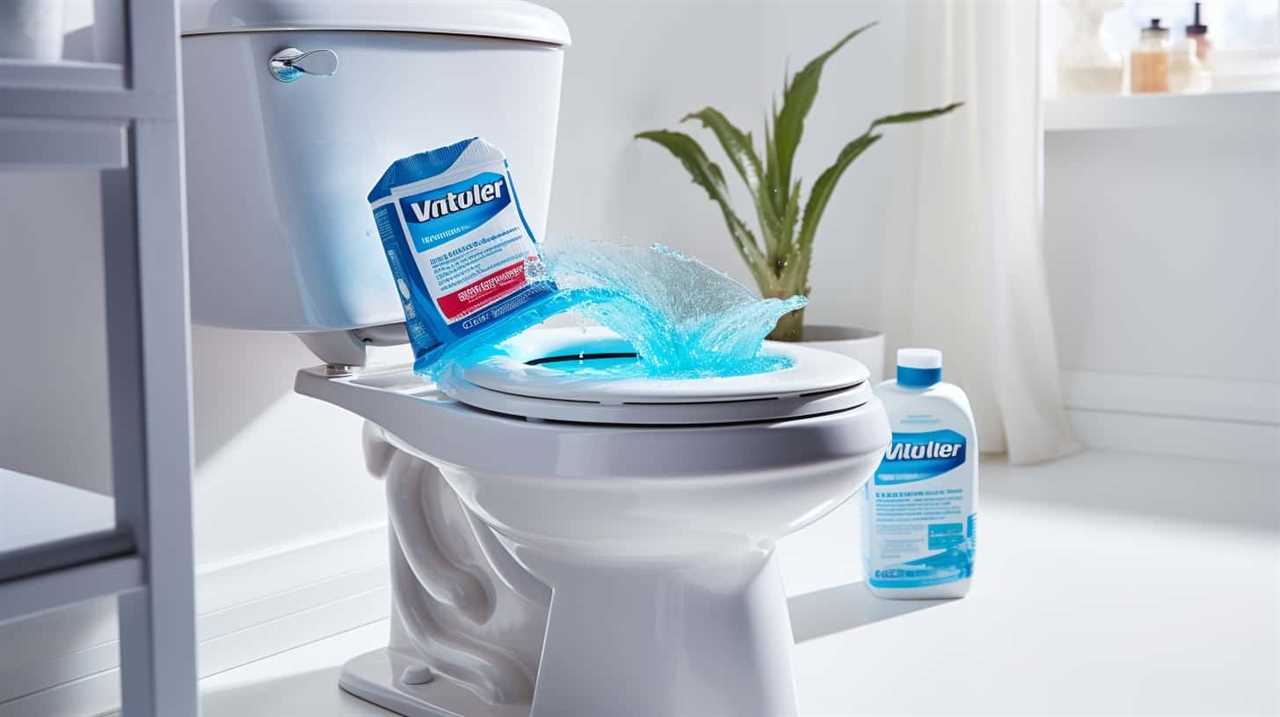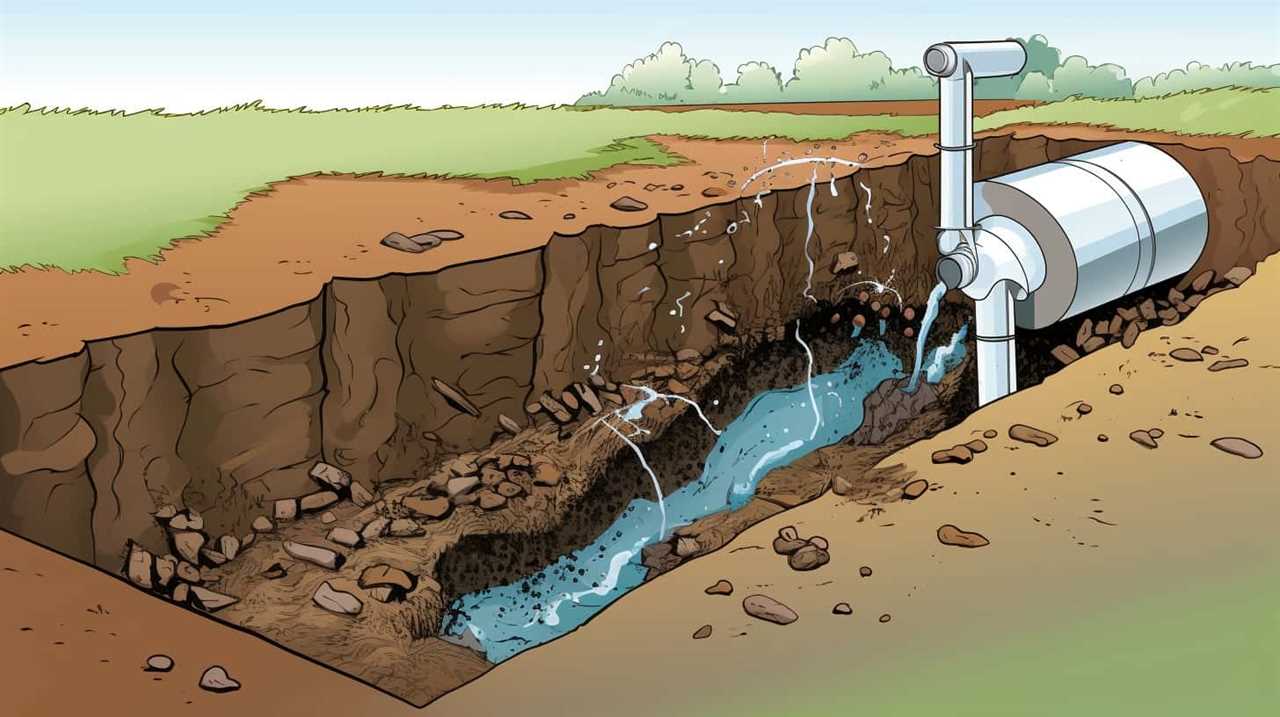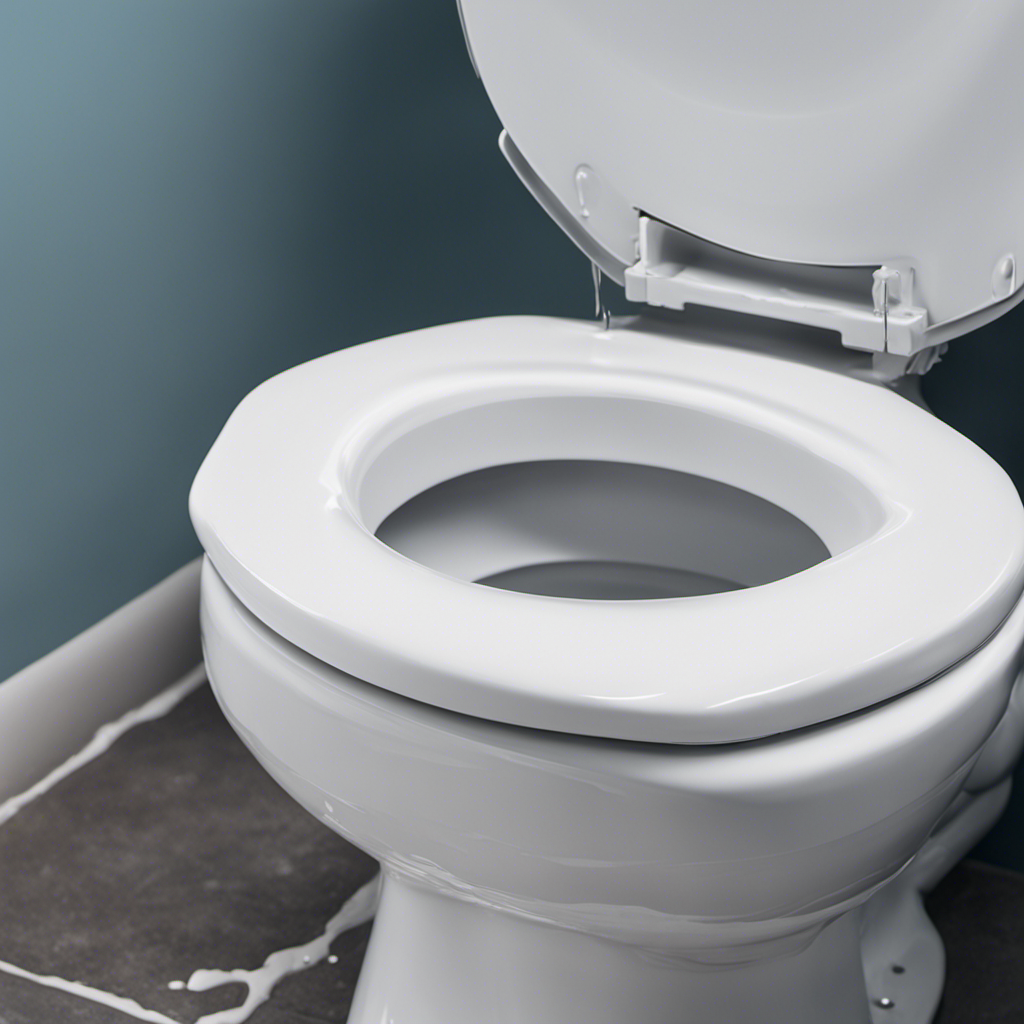Are you questioning the safety of flushing wipes down the toilet? We have the information you need.
In this article, we’ll delve into the environmental impact of flushing wipes, the risks it poses to plumbing and sewer systems, and the effects on water treatment facilities.
We’ll also explore alternative methods of disposal and provide you with the proper ways to ensure a clean and efficient system.
Get ready to master the art of responsible waste management.

Key Takeaways
- Flushing wipes can have a detrimental environmental impact, as they are not biodegradable and can end up in waterways, contaminating rivers, lakes, and oceans.
- Wipes can clog sewer systems and contribute to the formation of fatbergs, leading to sewage backups in homes, businesses, and neighborhoods.
- Flushing wipes can also cause problems in water treatment facilities, reducing their efficiency and leading to untreated wastewater release and increased water pollution.
- To prevent these issues, it is important to find alternative disposal methods for wipes, such as using biodegradable wipes, reusable cloth wipes, or toilet paper, and properly disposing of wipes in the trash, recycling, or composting them.
Environmental Impact of Flushing Wipes
Frequently, we flush wipes down the toilet without considering the detrimental environmental impact they have. Wipes pollution is a growing concern as these products aren’t biodegradable and can end up in our waterways, causing significant harm to marine life.
When wipes are flushed, they can clog sewer systems and contribute to the formation of fatbergs, which are large masses of solid waste that can block sewage pipes. These blockages can lead to sewage overflow, contaminating rivers, lakes, and oceans with harmful bacteria and chemicals.
Marine life is particularly vulnerable to the impact of wipes pollution. Marine animals can mistake wipes for food, leading to internal injuries and even death. Additionally, the chemicals present in wipes can leach into the water, causing further harm to aquatic ecosystems.
It’s essential to understand the consequences of flushing wipes and explore more sustainable alternatives to protect our environment and marine life.

Risks to Plumbing and Sewer Systems
As we continue the discussion on the environmental impact of flushing wipes, it’s important to address the risks that these products pose to plumbing and sewer systems. Flushing wipes down the toilet can lead to serious risks to the infrastructure and result in costly repairs. Here are three specific risks associated with this practice:
- Clogging: Wipes, especially those labeled as ‘flushable,’ don’t break down easily like toilet paper. They can accumulate in pipes and sewer lines, causing blockages that can disrupt the flow of wastewater.
- Sewer backups: When wipes clog the sewer system, it can lead to sewage backups in homes, businesses, and even entire neighborhoods. This not only poses health risks but also requires expensive repairs to fix the damage.
- Overloading treatment plants: Wipes that make their way to water treatment facilities can overload the system’s capacity to filter out solids, leading to malfunctions and increased operational costs.
Considering these risks to infrastructure and the potential cost of repairs, it’s crucial to find alternative disposal methods for wipes.
Now, let’s explore the effects of flushing wipes on water treatment facilities.
Effects on Water Treatment Facilities
Now, let’s delve into how flushing wipes down the toilet affects water treatment facilities. When wipes are flushed, they can cause significant problems for these facilities.

One of the main concerns is water pollution. Wipes don’t break down easily like toilet paper, so they can clog pipes and pumps in the treatment process. This can lead to backups and overflows, resulting in untreated wastewater being released into the environment.
Additionally, wipes can accumulate in screens and filters, reducing the efficiency of the treatment process. This not only increases the cost of operations but also increases the risk of pollutants entering our waterways.
Therefore, it’s crucial to dispose of wipes properly in the trash to avoid clogging issues and water pollution in our treatment facilities.
Alternatives to Flushing Wipes
We often find ourselves wondering about alternative methods for disposing of wipes instead of flushing them down the toilet. Fortunately, there are several eco-friendly options and reusable alternatives available that can help us reduce waste and protect the environment.

Here are three options to consider:
- Use biodegradable wipes: Look for wipes that are specifically labeled as biodegradable. These wipes are designed to break down naturally over time, reducing their impact on the environment.
- Switch to reusable cloth wipes: Consider using reusable cloth wipes instead of disposable ones. These can be made from soft, absorbent materials like cotton or bamboo and can be washed and reused multiple times, reducing waste and saving money in the long run.
- Opt for toilet paper: In many cases, wipes are used as an alternative to toilet paper. However, using toilet paper is a more sustainable option as it’s specifically designed to break down quickly in water and is less likely to cause blockages in sewage systems.
Proper Disposal Methods for Wipes
To properly dispose of wipes, it is important to follow specific guidelines that ensure minimal environmental impact and prevent potential blockages in sewage systems. While flushing wipes down the toilet is not recommended, there are alternative methods that can be used for their proper disposal. One option is to recycle wipes that are made from recyclable materials. Many communities have recycling programs in place that accept certain types of wipes. Another option is composting wipes that are biodegradable. These wipes can be added to a compost pile or bin, where they will break down naturally over time. By recycling or composting wipes, we can reduce the amount of waste that ends up in landfills and minimize the negative impact on the environment.
| Disposal Method | Environmental Impact |
|---|---|
| Recycling | Minimal |
| Composting | Minimal |
Frequently Asked Questions
Are All Types of Wipes Equally Harmful to the Environment When Flushed Down the Toilet?
Different types of wipes have varying degrees of harm to the environment when flushed down the toilet. Flushing wipes can lead to clogged pipes, sewage backups, and water pollution, posing serious consequences for our ecosystems.
Can Flushing Wipes Down the Toilet Cause Blockages in Household Plumbing?
Flushing wipes down the toilet can lead to potential plumbing issues. They can cause blockages and clog pipes, resulting in costly repairs. Additionally, the environmental impact of flushing wipes is significant, as they can contribute to sewer backups and pollution.

Do Water Treatment Facilities Have Effective Systems in Place to Remove Wipes From Wastewater?
Water treatment facilities utilize advanced technology to effectively remove wipes from wastewater. However, flushing wipes down the toilet can still have a negative environmental impact as they may clog pipes and contribute to the buildup of non-biodegradable waste.
What Are Some Alternative Methods of Disposing of Wipes That Are Safe for the Environment?
Eco friendly disposal options for wipes include throwing them in the trash or using biodegradable wipes. Proper disposal methods are crucial to protect the environment and prevent clogged pipes and sewage backups.
Can Wipes Be Composted or Recycled?
Composting wipes can have numerous benefits, such as enriching the soil and reducing waste. However, not all wipes are compostable, so it’s important to check the packaging. Recycling options for wipes may vary depending on the materials used.
Conclusion
In conclusion, while it may be convenient to flush wipes down the toilet, it isn’t okay due to the significant environmental impact, risks to plumbing and sewer systems, and effects on water treatment facilities.

Despite claims of ‘flushable’ wipes, they can still cause clogs and damage to infrastructure.
To protect the environment and maintain proper functioning of our systems, it’s best to dispose of wipes in the trash or explore alternatives such as biodegradable options.










